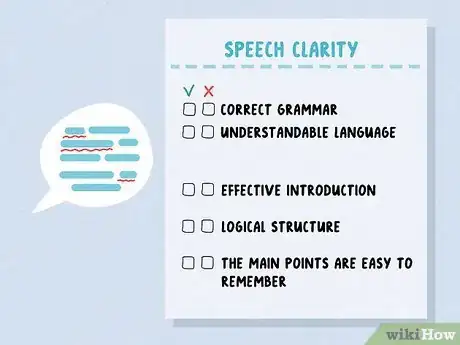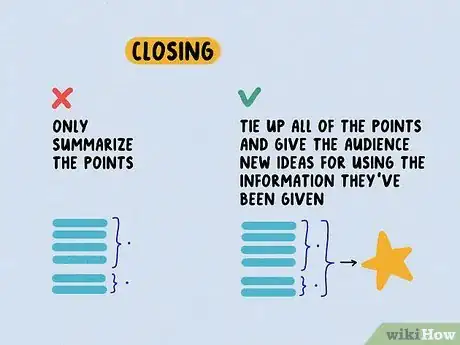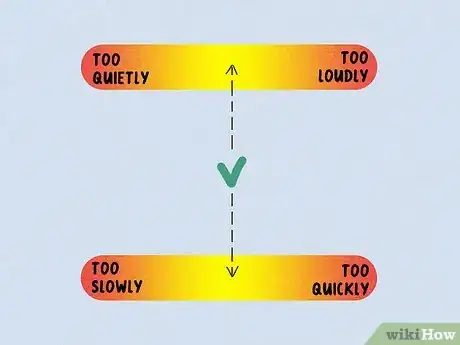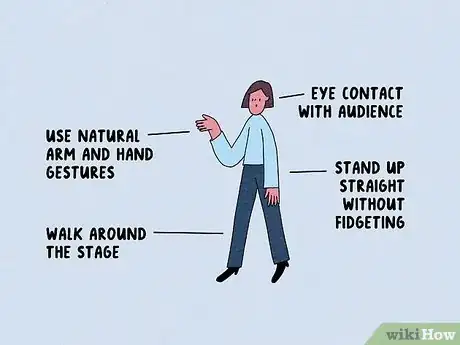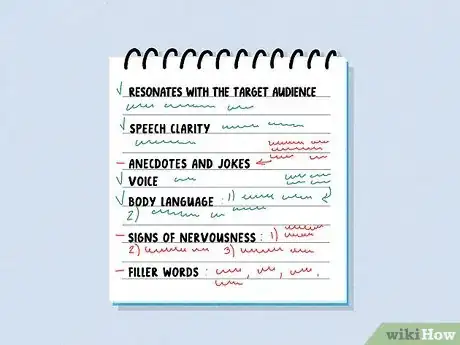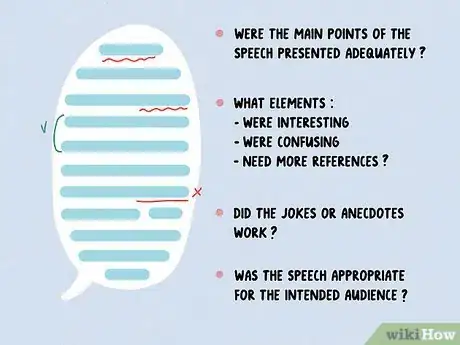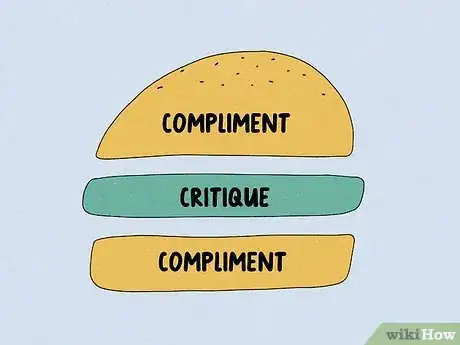This article was co-authored by Lynn Kirkham and by wikiHow staff writer, Christopher M. Osborne, PhD. Lynn Kirkham is a Professional Public Speaker and Founder of Yes You Can Speak, a San Francisco Bay Area-based public speaking educational business empowering thousands of professionals to take command of whatever stage they've been given - from job interviews, boardroom talks to TEDx and large conference platforms. Lynn was chosen as the official TEDx Berkeley speaker coach for the last four years and has worked with executives at Google, Facebook, Intuit, Genentech, Intel, VMware, and others.
There are 9 references cited in this article, which can be found at the bottom of the page.
wikiHow marks an article as reader-approved once it receives enough positive feedback. In this case, several readers have written to tell us that this article was helpful to them, earning it our reader-approved status.
This article has been viewed 182,764 times.
A good speech critique helps build the speaker’s skills by honestly identifying areas for improvement in a constructive, encouraging manner. Offering a good critique can also benefit your own public speaking skills! This article lists several questions you should ask yourself while critiquing a speech’s content and the speaker’s delivery, then provides pointers for effectively sharing your findings.
Steps
Expert Q&A
Did you know you can get expert answers for this article?
Unlock expert answers by supporting wikiHow
-
QuestionHow do I get better at public speaking?
 Lynn KirkhamLynn Kirkham is a Professional Public Speaker and Founder of Yes You Can Speak, a San Francisco Bay Area-based public speaking educational business empowering thousands of professionals to take command of whatever stage they've been given - from job interviews, boardroom talks to TEDx and large conference platforms. Lynn was chosen as the official TEDx Berkeley speaker coach for the last four years and has worked with executives at Google, Facebook, Intuit, Genentech, Intel, VMware, and others.
Lynn KirkhamLynn Kirkham is a Professional Public Speaker and Founder of Yes You Can Speak, a San Francisco Bay Area-based public speaking educational business empowering thousands of professionals to take command of whatever stage they've been given - from job interviews, boardroom talks to TEDx and large conference platforms. Lynn was chosen as the official TEDx Berkeley speaker coach for the last four years and has worked with executives at Google, Facebook, Intuit, Genentech, Intel, VMware, and others.
Public Speaking Coach Practice getting in front of people and talking to them. Find every opportunity you can to practice making eye contact with others, talking in a calm and even manner, and keeping a productive pace while you speak. You can study public speaking all you'd like, but for most people this won't help all that much. When you see eyes on you, your nervous system can trigger an anxious response. The only way to get over this is to practice.
Practice getting in front of people and talking to them. Find every opportunity you can to practice making eye contact with others, talking in a calm and even manner, and keeping a productive pace while you speak. You can study public speaking all you'd like, but for most people this won't help all that much. When you see eyes on you, your nervous system can trigger an anxious response. The only way to get over this is to practice. -
QuestionWhat should be avoided in a speech?
 Lynn KirkhamLynn Kirkham is a Professional Public Speaker and Founder of Yes You Can Speak, a San Francisco Bay Area-based public speaking educational business empowering thousands of professionals to take command of whatever stage they've been given - from job interviews, boardroom talks to TEDx and large conference platforms. Lynn was chosen as the official TEDx Berkeley speaker coach for the last four years and has worked with executives at Google, Facebook, Intuit, Genentech, Intel, VMware, and others.
Lynn KirkhamLynn Kirkham is a Professional Public Speaker and Founder of Yes You Can Speak, a San Francisco Bay Area-based public speaking educational business empowering thousands of professionals to take command of whatever stage they've been given - from job interviews, boardroom talks to TEDx and large conference platforms. Lynn was chosen as the official TEDx Berkeley speaker coach for the last four years and has worked with executives at Google, Facebook, Intuit, Genentech, Intel, VMware, and others.
Public Speaking Coach
-
QuestionA speech critique should balance what?
 Community AnswerA speech critique should balance between being proper, organized, and professional.
Community AnswerA speech critique should balance between being proper, organized, and professional.
References
- ↑ http://faculty.washington.edu/mcgarrit/COM220/online%20readings/Peer_Critique_Assignment_Description.pdf
- ↑ Lynn Kirkham. Public Speaking Coach. Expert Interview. 20 November 2019.
- ↑ http://faculty.washington.edu/mcgarrit/COM220/online%20readings/Peer_Critique_Assignment_Description.pdf
- ↑ http://faculty.washington.edu/mcgarrit/COM220/online%20readings/Peer_Critique_Assignment_Description.pdf
- ↑ http://faculty.washington.edu/mcgarrit/COM220/online%20readings/Peer_Critique_Assignment_Description.pdf
- ↑ http://www.uvm.edu/~cals183/spring2017/outside.html
- ↑ http://sixminutes.dlugan.com/speech-evaluation-1-how-to-study-critique-speech/
- ↑ https://www.psycom.net/glossophobia-fear-of-public-speaking
- ↑ Lynn Kirkham. Public Speaking Coach. Expert Interview. 20 November 2019.
- ↑ https://hbr.org/2020/02/dont-just-memorize-your-next-presentation-know-it-cold
- ↑ http://www.uvm.edu/~cals183/spring2017/outside.html
- ↑ http://sixminutes.dlugan.com/speech-evaluation-2-art-of-delivering-evaluations/
- ↑ http://faculty.washington.edu/mcgarrit/COM220/online%20readings/Peer_Critique_Assignment_Description.pdf
- ↑ http://sixminutes.dlugan.com/speech-evaluation-1-how-to-study-critique-speech/
- ↑ https://www.toastmasters.org/magazine/magazine-issues/2016/oct2016/evaluation
- ↑ http://sixminutes.dlugan.com/speech-evaluation-3-modified-sandwich-technique/
About This Article
To critique a speech, start by evaluating whether or not the speaker made their argument apparent in the first few sentences of their speech. Then, decide if the rest of the speech supported that argument in a smooth, understandable manner. You should also focus on the speaker’s voice inflections, like speaking at a natural pace and knowing when to pause for effect. Additionally, evaluate their body language, which should project confidence with gestures like making eye contact and standing up straight without fidgeting too much. For more advice, including how to give constructive feedback in areas like credibility and emotional intelligence, keep reading.

